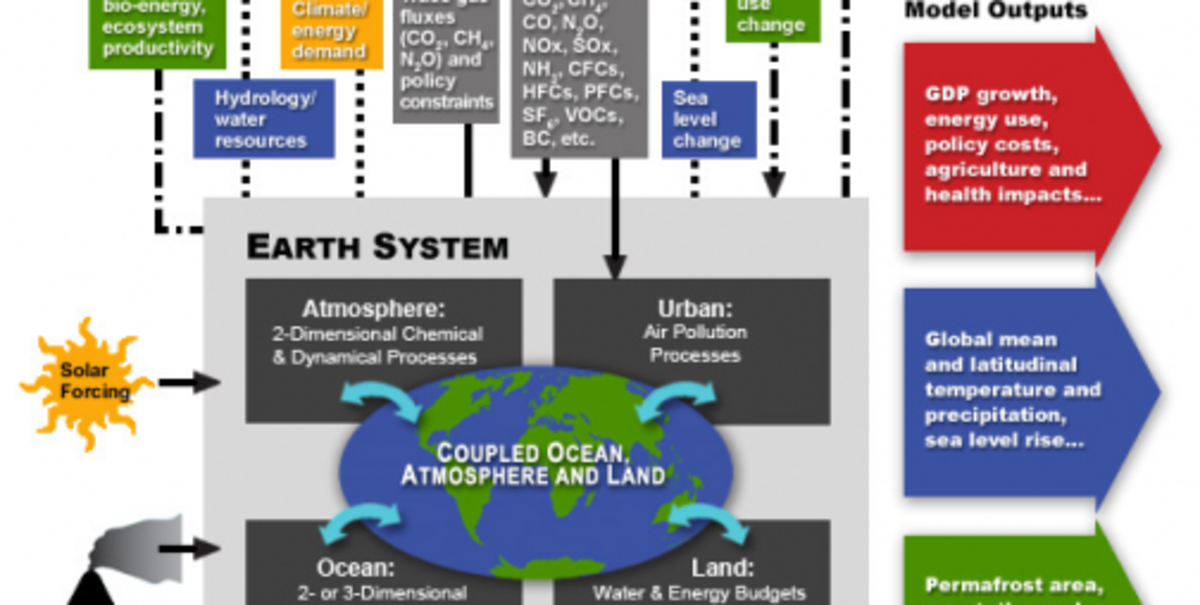MIT Joint Program On The Science and Policy of Global Change
As part of its collaboration with other MIT research groups, PAOC maintains an active research partnership with the Joint Program on the Science and Policy of Global Change. The MIT Joint Program integrates natural and social science to produce analyses relevant to climate and energy policy debates.

Website:
http://globalchange.mit.edu
Global change impacts many elements of life, from traditional agriculture to the modern industrial economy, and is intertwined with many current issues, such as international policy, energy security, global trade, and economic development. This tangle of environmental threats, uncertainties, and intersecting policy concerns poses political, economic, and communication challenges.
Balancing these risks and weighing costs and benefits is crucial to making policy decisions, and must be informed by comprehensive, relevant analyses.
The MIT Joint Program brings together both science and policy to provide a truly independent integrative assessment of the impacts of climate change and the expected values of responsive actions. The research conducted at MIT is valuable to government agencies, who aim to formulate efficient and effective policies, to industries, who aim to create risk management strategies within national, regional, and global market realities, and to other decision makers, who value a systemic view of the broad interactions inherent in global change.
The MIT Joint Program combines the efforts of two complementary research centers at MIT: the Center for Global Change Science (CGCS) and the Center for Energy and Environmental Policy Research (CEEPR). Graduate students in PAOC's Climate Program benifit significantly from association with these two world-class centers and the researchers who work within them.
The primary research tool used in the Joint Program is the MIT Integrated System Model framework (IGSM), which is a facility for simulating global change and for assessing theeffects of policy proposals. The model framework is a linked set of computer models designed to help realize the Joint Program’s objective of integrated assessment. The IGSM combines models of the Earth system and models of human activities and the economy to produce a truly systemic approach to understanding global change issues. The modeling framework can be used to assess policy proposals and provide information on probabilities, uncertainties, risk, and costs and benefits to policymakers and the public. This integrated analysis tool allows researchers to simulate the global environmental changes that may arise as a result of human causes and the impact of these changes back on human activities and economies. It also provides a platform for studies of individual components of the globalchange issue.

